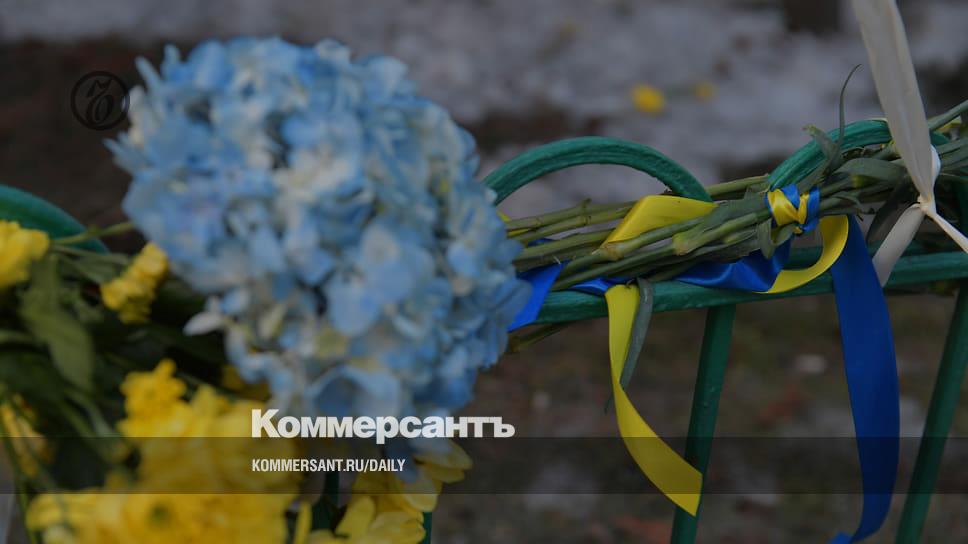Russians have been seeking help from psychologists due to constant anxiety and a sense of insecurity caused by the military operation in Ukraine. Several Russian NGOs are providing free psychological support to anyone in need, including citizens of Russia, Belarus, Ukraine, and residents of Donbass. Psychologists advise limiting Internet use, focusing on the present, and remind people that feeling worried in such a hard situation is a normal reaction of the mind.
Photo: Gleb Shchelkunov, Kommersant
Photo: Gleb Shchelkunov, Kommersant
Russian NGOs have been posting messages of support on social networks since February 25, regardless of nationality, citizenship, or beliefs. They offer assistance and provide contact numbers for citizens to share their problems. The organizations include the Moscow Psychological Service, the Psychological Service of the Ministry of Emergency Situations, and project hotlines like “You are not alone” and “Your Territory” and others. Moscow psychological service, psychological service of the Ministry of Emergency Situationsproject hotlines “You are not alone”, “Your Territory”crisis service “Emotional conversation” and others.
Psychological service “Clear Morning”, which supports cancer patients, has switched to “crisis mode” since last Friday and is accepting appeals around the clock related to the situation in Donbass and Ukraine. The official Facebook page of the organization states that psychologists are ready to provide free psychological support to anyone in need, regardless of citizenship and place of residence.
The director of the Clear Morning service, Olga Goldman, notes that the number of calls has significantly increased during these days. She mentioned the types of requests received by the service, such as constant anxiety, a lost sense of security, helplessness, anger, fear, and guilt in connection with the military operation in the neighboring country.
- constant anxiety;
- a lost sense of security – “as if the ground had been knocked out from under their feet”;
- helplessness, anger, fear and guilt in connection with a military operation in the territory of a neighboring country.
People describe their difficult situations when seeking help from the psychologists of the service. Some are worried about the impact of the war on their work and businesses, while others are dealing with family conflicts due to differing political views. One person even requested support because their partner was conscripted into the army and they fear for his life.
Olga Goldman expresses that anxiety is the main feeling among people. They fear for their lives and feel that they have no support. She also mentions that anxious feelings are often not clearly expressed.
The advice is to identify the specific causes of anxiety, as dealing with a vague cloud of worry is impossible. It is also suggested to focus on the present and immediate future, rather than worrying about the distant future.
The Moscow Department of Social Protection, which arranges psychological help, could not promptly confirm if additional support measures are planned. Most regions also did not confirm the preparation of such programs. The Crimean government mentioned that they are considering providing psychological assistance, but it has not been implemented yet. Peninsula residents can currently only seek help from private specialists.
Natalia Skuratovskaya, a crisis psychologist, informs that various psychological associations provide free support. These include the Association for Crisis Psychology and the Association for Trauma and Existential Therapy. She also mentions that experts offer help through social media. Skuratovskaya notes that people from Russia, Belarus, Ukraine, and Donbass are seeking help.
Natalia Skuratovskaya advises that individuals feeling overwhelmed by anxiety, bitterness, or despair should limit their internet usage. She emphasizes the importance of not neglecting one's own mental state and not being in a position to support others while in an unstable state.
Natalia Skuratovskaya recommends engaging in activities that provide tangible results, such as work or household tasks, and offering emotional support to those around who need it. She also suggests nurturing and caring for children and pets, as this can provide a sense of stability. Skuratovskaya advises individuals to prioritize physical well-being, including eating, walking, and seeking professional help if needed or reducing exposure to news.
Vyacheslav Filashikhin, chief physician of the Rosa Center for Psychiatry, Neurology and Narcology, lists symptoms that warrant a doctor's consultation:
- Persistent sleep and appetite disturbances.
- Feeling of a lump in the throat.
- Heavy feeling in the chest.
- Internal trembling.
- Increased heart rate.
He notes that current events have clearly affected citizens' mental health. He describes the concept of a “reactive state,” which occurs as a response to an event. This can be an acute reaction in the initial days or delayed reactions that develop over time. He also suggests that heightened anxiety is a natural response to traumatic events and that, over time, most people will naturally cope with these feelings.
Natalya Kostarnova; regional corset “Kommersant”




